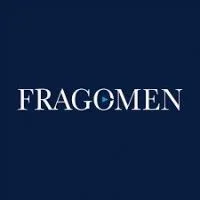- within Immigration topic(s)
- in United States
- with readers working within the Media & Information industries
- within Insurance and Family and Matrimonial topic(s)
At a Glance
- As previously announced, the Quebec Regular Skilled Worker Program (PRTQ) has been replaced by a new Permanent Residence Skilled Worker Selection Program (PSTQ) as of November 29, 2024. The PSTQ program will become available on June 30, 2025.
- In the meantime, individuals who already submitted an Expression of Interest in Quebec may update their declaration to be considered for an invitation to apply when Quebec resumes invitations on June 30, 2025.
- The new PSTQ has stricter French language requirements, whereas the previous PRTQ did not require applicants to speak French.
The situation
As previously announced, the Quebec Regular Skilled Worker Program (PRTQ) has been replaced by a new Permanent Residence Skilled Worker Selection Program (PSTQ) as of November 29, 2024. The PSTQ program will become available on June 30, 2025.
A closer look
- About the PSTQ. The PSTQ is a pathway that allows skilled foreign workers seeking to settle and work in Quebec to become permanent residents of Canada. Under this program, applicants must first submit an Expression of Interest via Quebec's ARRIMA online platform. Applicants are then ranked based on their level of competence, field of activity, regulated profession or exceptional talent. Depending on their score, the Quebec government may invite them to apply for permanent residence.
- Streams and general criteria. The new PSTQ has four immigration streams. Applicants must meet the program's selection criteria to be selected as permanent residence candidates in one of the four streams. The general criteria of each stream are described on the government website.
Impact
- Stricter French language requirements. Previously, the PRTQ was the only permanent residence program in Quebec that did not require the applicant to speak French. As a result of the transition to the new PSTQ, all of Quebec's economic immigration programs now require proficiency in French (with very few exceptions for foreign nationals who can demonstrate exceptional talent).
- Suspension period. As of October 31, 2024, Quebec halted invitations to apply for permanent residence under the previous PRTQ and the new PSTQ This suspension will remain in effect until June 30, 2025. In the meantime, individuals who already submitted an Expression of Interest in Quebec may update their declaration to be considered for an invitation to apply when Quebec resumes invitations on June 30, 2025. Other interested applicants could take advantage of this time to meet the eligibility criteria and increase their chances of being invited to apply for permanent residence in Quebec.
Background
In January 2024, Quebec announced several reforms to its immigration rules, focusing on stricter French language requirements for several immigration programs, including the transition to the new PSTQ program.
Furthermore, in November 2024, Quebec suspended applications under several immigration streams to revamp the immigration system, including during the transition to the new PSTQ.
Looking ahead
The government's commitment to preserving the French language remains a prominent feature of Quebec's immigration policy. The government of Canada has also announced a new policy on Francophone Immigration, which includes a five-year plan to expand the presence of Francophone communities in the country and attract French-speaking immigrants into Canada, including outside Quebec. Forthcoming initiatives and changes with this aim can be expected.
Quebec has also revealed that a new, multi-year plan for immigrant admissions will launch between March and May 2025, likely resulting in more immigration initiatives and changes in Quebec.
Fragomen will continue to report on relevant developments.
The content of this article is intended to provide a general guide to the subject matter. Specialist advice should be sought about your specific circumstances.


